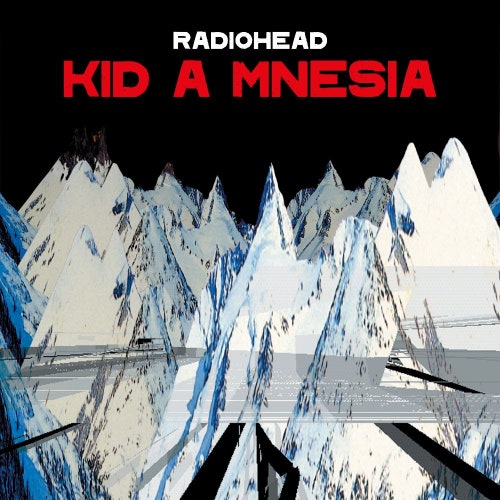Listen to “If You Say the Word” by Radiohead
During the sessions that would become the band’s paired landmarks of early-millennium dystopia, Radiohead puzzled over how to finish a work in progress dubbed the “C-Minor Song.” As guitarist Ed O’Brien wrote in his contemporaneous blog, what was once little more than an acoustic demo with a mumbled Thom Yorke guide vocal was eventually reworked “in a Stax stylee.” Yet as time went on, Jonny Greenwood apparently decided the song was “getting a little too tasteful and nice,” and O’Brien started fretting about his part. This allegedly “too slick” track wound up sitting on a shelf.
Now, more than two decades later, Radiohead have unveiled “If You Say the Word” as part of the upcoming Kid Amnesiae, a compilation of offcuts from the 2000-2001 companion albums to coincide with a triple-LP reissue titled Kid A Mnesia. This absorbing exercise in mournful Yorkean ambiguity doubles as a reminder of the role chance plays in what seems “classic.” Although not as storied or immediately stunning as 2017’s belated release of OK Computer cast-off “Lift,” “If You Say the Word” sounds as lush and elegant as you’d hope when set in a fresh context; its delicate finger-picking and foreboding groove are decked out with eerie, nuanced production, including chiming percussion and wobbly ondes Martenot.
While “If You Say the Word” doesn’t immediately stand out as fodder for a Radiohead best-of playlist, it’s still of such strikingly high quality that it’s surprising it hasn’t surfaced before now. Somewhere between the ominous rumble of OK Computer’s “Climbing Up the Walls” and the acoustic-forward balladry of Kid A’s “How to Disappear Completely,” it’s a snapshot of one of the defining bands of the era, from a moment when their every tossed-off demo seemed to hold enough inspiration to last for years. What draws me in most, as with many Radiohead songs, is the double-edged nature of it all: Superficially pretty but hardly cheerful, it lifts a title phrase that spelled forever-love on the Beatles’ jaunty “When I’m Sixty-Four,” but here the intent is enigmatic. “I’ll come running,” Yorke vows, but when he also sneers that “you change your friends like changing your clothes,” that’s not exactly a reassuring promise—unlike Brian Eno, he’s probably not hurrying to tie your shoe. What remains is what might have been: a lost classic, a loving threat, and one hell of a preview for Kid Amnesiae.
